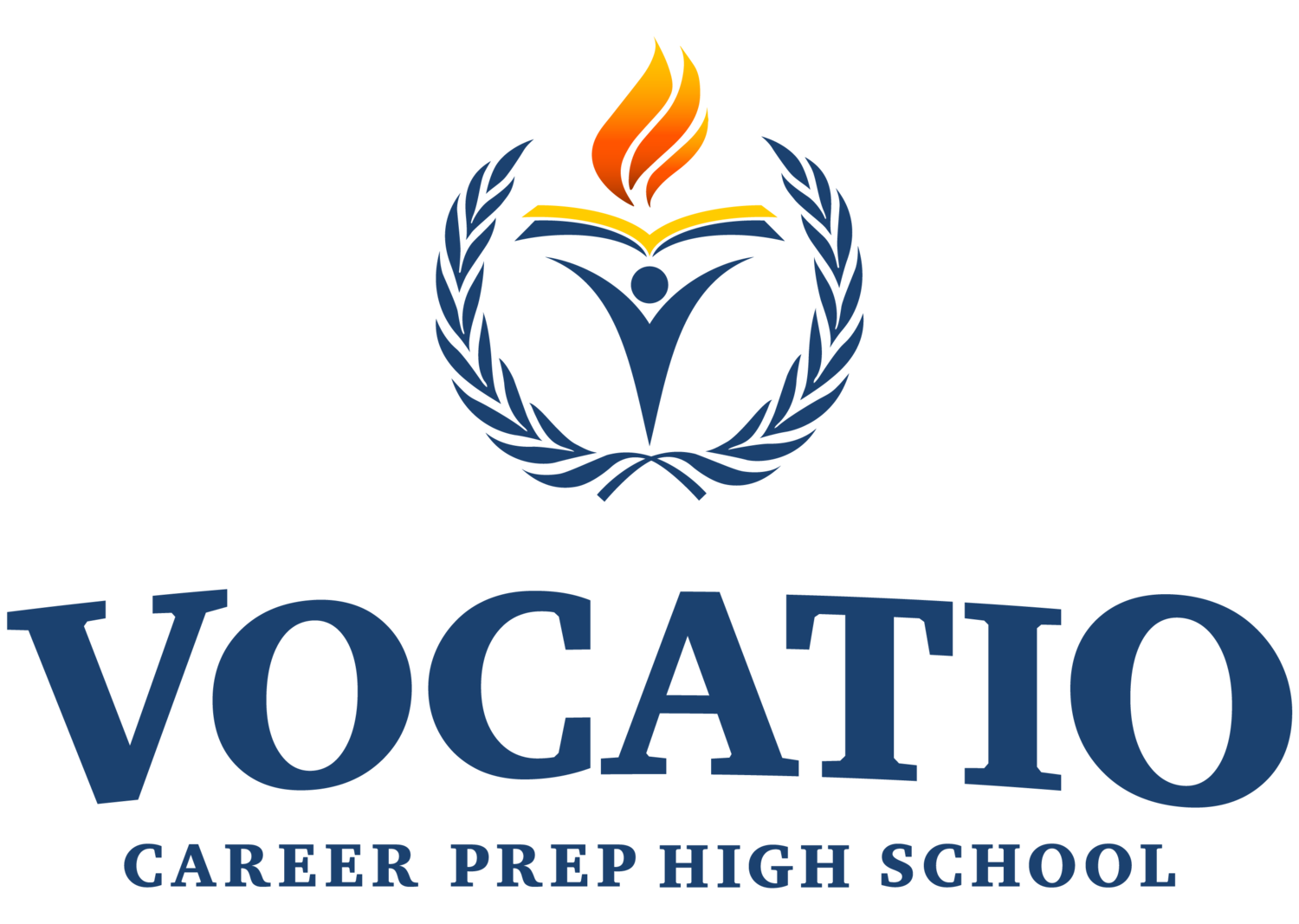
Vision-based learning.
Our Promises
Growth
Nurture our students into a relationship with Jesus Christ so that they can grow spiritually, academically, psychologically, emotionally, and socially.
Provide students with an understanding of Christianity that celebrates the global ethnicities of Biblical characters.
Ready
Equip and encourage our students to identify and pursue their calling through vocational trades and vision based learning.
Create
Create classroom communities that encourage students to have individual voices that provide students with education that they want, need and desire.
Academics
Provide restorative academics that place students on their proper grades levels and above.
Partner with businesses and churches for the ongoing mentoring and employability of students.
Inclusion
Create a school environment that gives students the opportunity to wrestle with racism, anti-racism, and education as a practice of freedom.
Hire and develop staff that embrace the mission of the school.
Breaking The Cycle
Provide a trauma-informed school environment that welcomes students and teachers, using redemptive discipline practices that help to dismantle the school-to-prison pipeline for our students.
Become a beacon of light and hope in the community of Hunting Park and Philadelphia.
VISION-BASED LEARNING – LEADING BY SERVING STARTS NOW
As we continually orient our school around this audacious vision, we encounter the reality that students learn to “lead by serving” only by leading and serving. So, the essence of our work must be providing avenues for students to lead by serving in their classrooms, in their school, in their community, and beyond, with the understanding that every arena of society – science and technology, the arts, government, journalism, vocational ministry – offers opportunities to be agents of God’s Kingdom. Leading by serving is not about preparing students for the important, complex work they will accomplish “someday” or “somewhere.” Leading by serving starts here and now. It is the defining feature of the VCPHS experience.
At VCPHS, we will call these leading-by-serving experiences “vision-based learning.” Students learning about carpentry by partnering with the local community or business to complete a renovation project - that’s vision based learning. A group of high school students expressing concern about racial inequities in our country, articulating a set of burning questions, and working with a team of faculty, parents, students, and outside experts to organize a weeklong discussion on the subject of racial justice – that’s vision-based learning. When engaged in vision-based learning, students are accomplishing work that matters to the larger community. They are framing questions and pursuing answers. They are taking risks. They are making decisions. They are collaborating with peers and adults; negotiating, communicating, contributing. They are active agents in their own education.
In the process, they are developing and exhibiting, in increasing measure, the passion, skill, integrity, and faith that characterize one who leads by serving.

The implications for student learning are profound
Purposeful learning.
Why are we studying this? It’s a critical question often left unanswered in schools, despite compelling research demonstrating that a clear sense of purpose fuels passionate learning. What if we’re learning this so that we can discover answers to our own burning questions? So that we can participate in a cause that is important to us? So that we can accomplish important work? When schooling is purposeful, students are poised to lead by serving with passion.
Contextualized Learning
We know that learning is not ultimately about studying discrete bits of information, but rather about constructing a meaningful framework of knowledge. When students see how information and ideas relate and fit together, they learn more and can apply their knowledge in new and useful ways. They don’t just know – they understand; and, by understanding, they become more able, competent, powerful people. Vision-based learning provides a meaningful context to lead by serving with ever increasing skill.
Personal Learning
Too often, students assume a passive role in school; their education happens to them. But we know that students learn deeply when they have a personal responsibility: when they set goals and monitor their own progress; when they articulate questions and pursue answers; when they are called upon to make decisions, take risks, and claim responsibility. Cognitive scientists call this “metacognition” – a thoughtful efficacy in learning. In vision-based learning, exercising agency and accepting responsibility develops integrity.
Relational Learning
Vision-based learning projects, by nature, require collaboration with peers, teachers, and members of the larger community. They raise students’ attention above personal aspirations, bringing into focus others’ needs and perspectives. And they call upon students to consider their role in the larger work of God’s kingdom, taking prayerful steps of obedience to the Gospel. In short, leading by serving exercises faith.
*Vision-Based Learning language was adopted from www.bcacademy.org.

